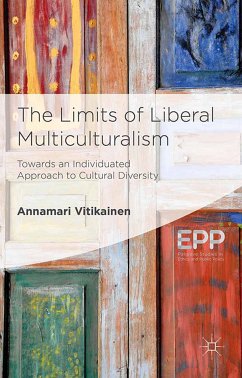
Evolutionary Basic Democracy (eBook, PDF)
A Critical Overture
Versandkostenfrei!
Sofort per Download lieferbar
40,95 €
inkl. MwSt.
Weitere Ausgaben:

PAYBACK Punkte
20 °P sammeln!
No one in this world truly understands what democracy means. We operate democracy only through best guesses. This uncertainty has caused, and continues to cause, significant political troubles. This book offers a way forward. It provides a new tool that will allow us to understand democracy for the entire planet and all of humanity.
Dieser Download kann aus rechtlichen Gründen nur mit Rechnungsadresse in A, B, BG, CY, CZ, D, DK, EW, E, FIN, F, GR, HR, H, IRL, I, LT, L, LR, M, NL, PL, P, R, S, SLO, SK ausgeliefert werden.












